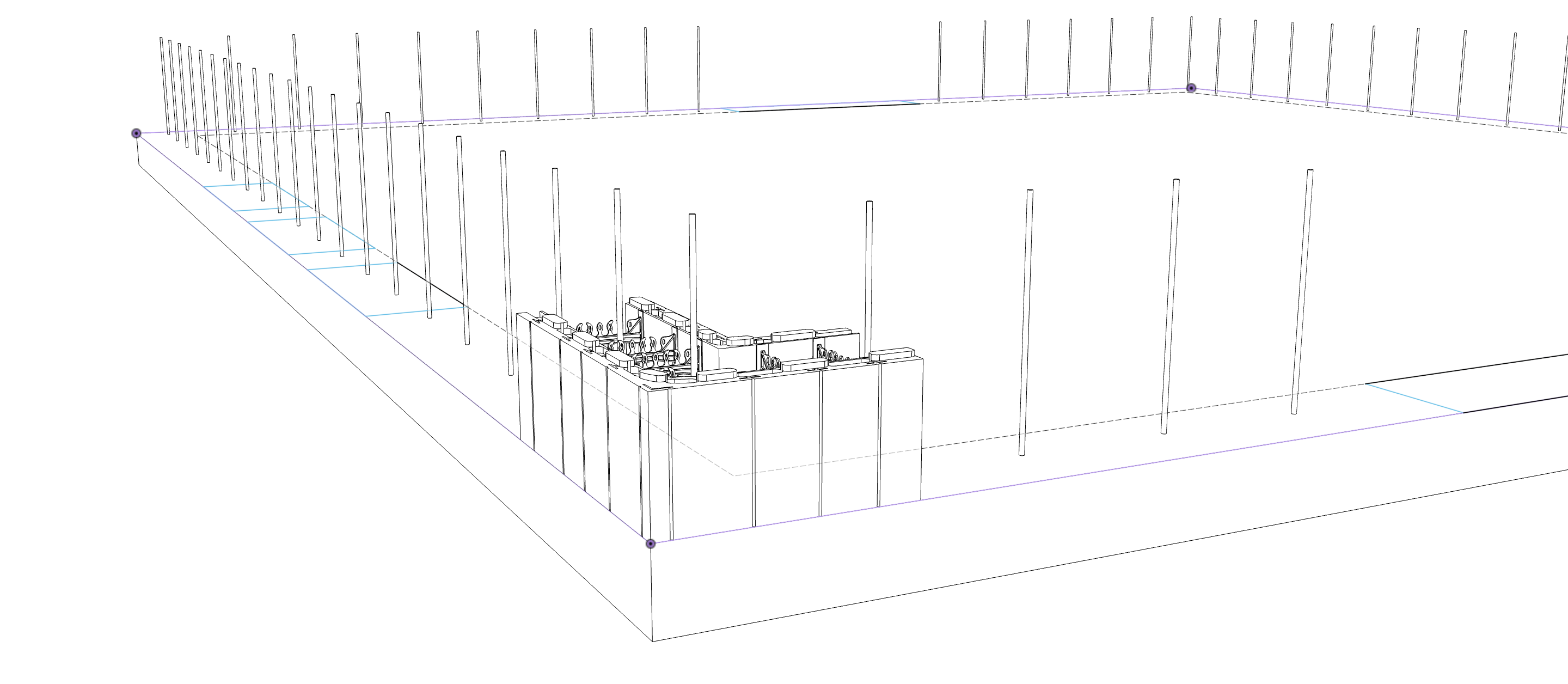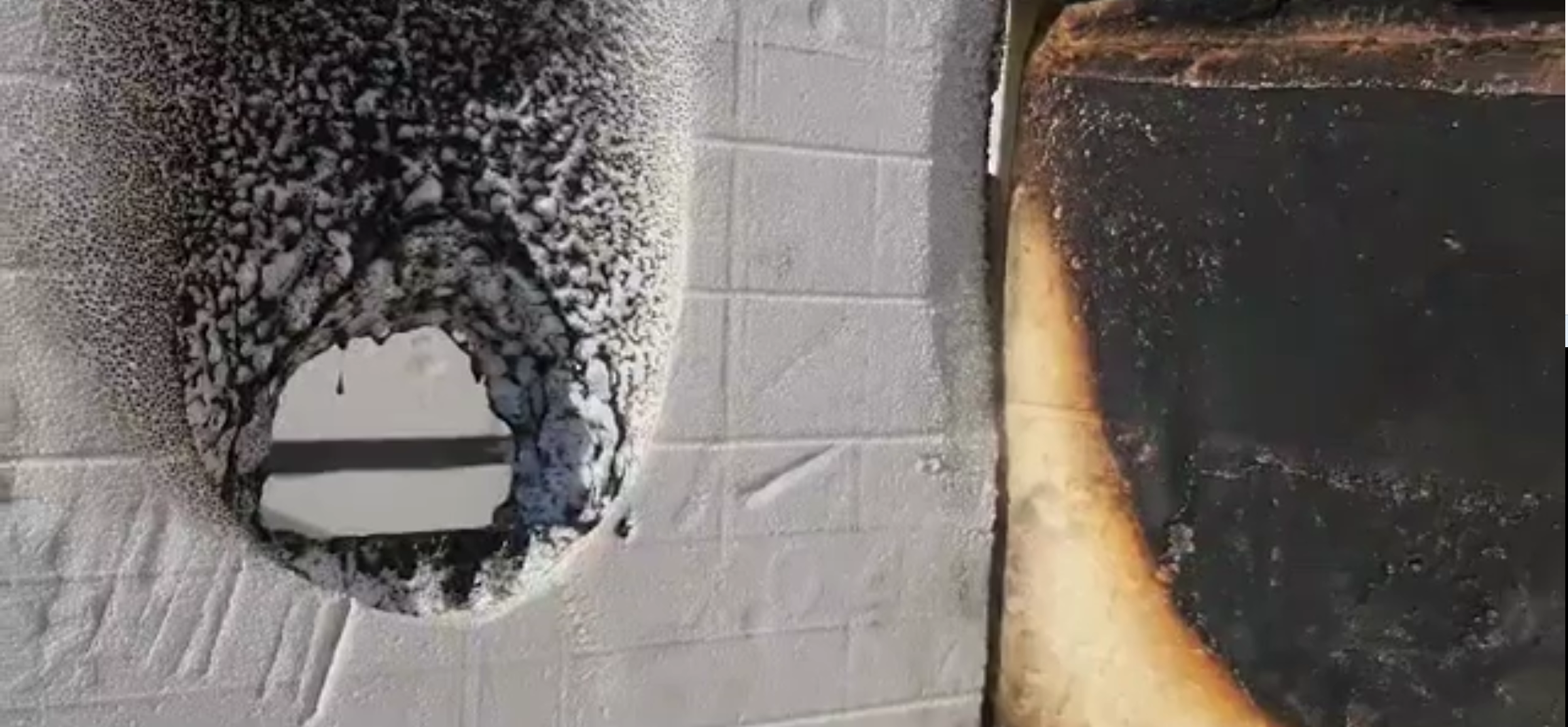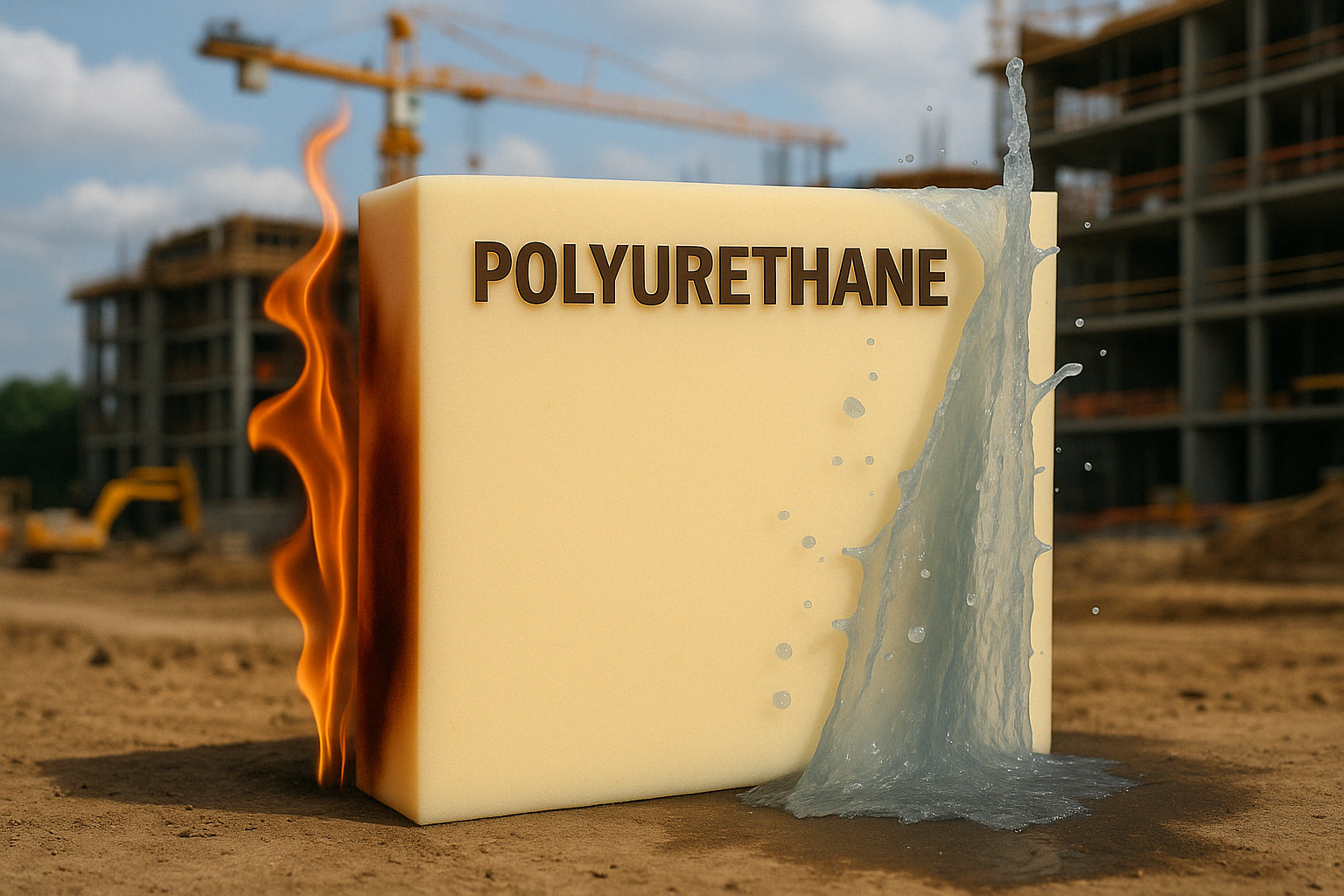In today’s construction industry, builders and homeowners face significant challenges: rising energy costs, increasingly extreme weather events, persistent labor shortages, and growing demands for sustainable building practices. While traditional building methods struggle to address these issues efficiently, an innovative solution is gaining traction—Monolith’s 7-in-1 Building System using polyurethane Insulated Concrete Forms (ICF).
Unlike conventional construction methods that require multiple systems, materials, and specialized labor, Monolith’s polyurethane ICF technology combines seven essential building functions into one integrated system. This article explores how this practical approach improves residential and commercial construction, delivering reliable performance while reducing costs, shortening build times, and minimizing environmental impact.
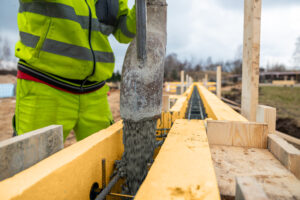
What Is the Monolith 7-in-1 Building System?
Monolith’s 7-in-1 Building System takes a practical approach to construction. Traditional building requires separate components and trades for structural support, insulation, vapor barriers, finishing surfaces, soundproofing, air sealing, and fire protection. Monolith integrates all seven of these essential functions into one cohesive system.
The Seven Integrated Functions
- Structure: The system combines high-density polyurethane with poured concrete, creating walls with exceptional strength and durability. The polyurethane forms serve as permanent insulation while the concrete core provides superior structural integrity.
- Insulation: Unlike standard building methods, Monolith’s closed-cell polyurethane delivers an R-33 value, creating a thermal envelope that significantly reduces heating and cooling needs. When combined with concrete’s thermal mass properties, it achieves an effective performance R-value of 60+.
- Vapor Barrier: The closed-cell structure of polyurethane, together with tight interlocking blocks, creates a reliable barrier against moisture. This eliminates the need for additional house wraps while providing superior protection against mold and water damage.
- Finish-Ready Surfaces: The system includes attachment points every 8 inches, allowing direct installation of interior drywall and exterior cladding without additional furring strips or special fasteners.
- Sound Barrier: With an STC (Sound Transmission Class) rating of 55+, Monolith walls effectively reduce noise transmission, creating quieter, more comfortable indoor spaces.
- Air Barrier: The rigid polyurethane forms and interlocking design create a seamless, airtight building envelope, eliminating the drafts and air leakage common in traditional construction.
- Fire Barrier: Unlike EPS forms that can melt or burn, Monolith’s Class 1/A fire-rated polyurethane foam combined with concrete provides 4+ hours of direct flame resistance without melting or compromising structural integrity.
The Polyurethane Advantage: Why Monolith Outperforms Traditional ICF
While ICF technology itself offers significant advantages over conventional construction methods, Monolith’s use of polyurethane rather than the industry-standard expanded polystyrene (EPS) delivers measurably superior performance.
Better Strength and Durability
Monolith’s polyurethane ICF blocks provide 1.8 times the compressive strength of traditional EPS forms, significantly reducing the risk of damage during handling, installation, and concrete pours. This improved durability means less waste, fewer delays, and stronger structures.
The closed-cell structure of polyurethane makes it highly resistant to moisture, preventing mold growth and maintaining insulation performance over time. Unlike EPS, which can absorb up to 2.95% moisture, Monolith’s polyurethane has zero water absorption.
Perhaps most importantly, polyurethane ICF provides exceptional resistance to severe weather. Structures built with Monolith can withstand winds exceeding 250 mph, making them ideal for hurricane-prone regions. Their resistance to water damage also provides superior protection during flooding events.
Improved Energy Efficiency
With an R-value of 33, Monolith’s polyurethane ICF significantly outperforms traditional building insulation systems. This superior thermal performance, combined with concrete’s thermal mass and airtight design, can reduce HVAC requirements by up to 50-75%, leading to substantial energy savings throughout the building’s lifespan.
Unlike fiberglass or even EPS insulation, polyurethane maintains its insulative properties over decades without settling or degradation. This ensures long-term energy efficiency and comfort without the performance decline common in conventional insulation materials.
Simplifying Construction
Monolith’s interlocking, reversible blocks enable faster installation with minimal training. The lightweight design reduces worker fatigue while still providing superior strength during concrete pours. This combination of ease-of-use and durability speeds up construction timelines while reducing labor costs.
The system’s all-weather installation capability eliminates weather-related delays that often halt traditional construction methods. Work can continue in conditions that would normally stop conventional building processes, further speeding up project completion.
By combining multiple building functions into one system, Monolith reduces the need for separate trades for framing, insulation, vapor barriers, and more. This streamlined approach can cut project timelines by up to 50%, allowing faster occupancy and reduced carrying costs.
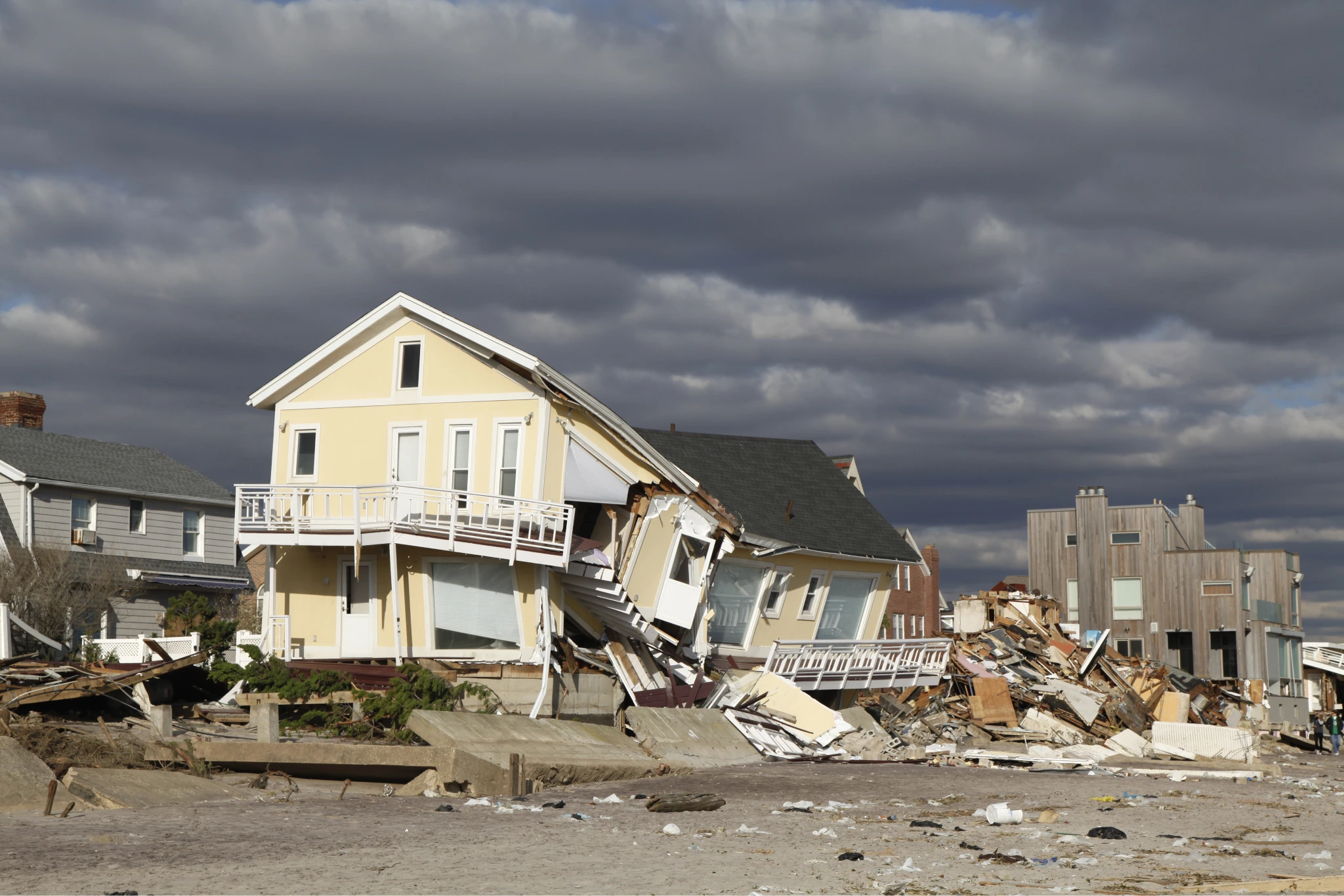
Real-World Performance: ICF Success Stories
The superior performance of ICF construction in extreme conditions isn’t theoretical—it’s been proven repeatedly in real-world situations:
- In East Harlem in 2014, an ICF building withstood a massive natural gas explosion while adjacent buildings were completely destroyed. The ICF structure sustained no structural damage despite the catastrophic blast.
- During Hurricane Michael in 2018, an ICF home in Florida known as the “Sand Palace” remained standing with only minor damage while surrounding conventional structures were destroyed. The building became a hub for relief efforts following the storm.
These examples highlight the exceptional resilience of ICF construction. With Monolith’s enhanced polyurethane technology, structures can achieve even higher levels of disaster resistance and durability.
The Economic Case for Monolith’s 7-in-1 System
While the initial material cost of Monolith’s polyurethane ICF system is higher than traditional construction materials, the long-term economic benefits more than compensate for this upfront investment.
Labor and Timeline Savings
The integrated 7-in-1 system significantly reduces labor requirements and construction time:
- Quick assembly through interlocking, reversible blocks enables faster installation with minimal training
- Fewer trades needed, eliminating separate crews for framing, sheathing, and insulation
- Lightweight materials reduce worker fatigue and injury-related delays
- All-weather installation capability eliminates costly weather-related downtime
- Projects can be completed up to 50% faster, reducing labor costs and increasing job site efficiency
Reduced Ownership Costs
The superior performance of Monolith’s system translates to significant savings throughout the building’s lifespan:
- Energy costs reduced by 30-40% through superior insulation and airtight construction
- Lower insurance premiums due to enhanced resistance to fire, hurricanes, and flooding
- Reduced maintenance expenses with no wood to rot or warp, mold-resistant materials, and termite-proof construction
- Smaller HVAC systems required, reducing both installation and operating costs
- Higher property values due to energy efficiency, disaster resistance, and superior comfort
Market Premium Potential
Homes built with Monolith’s system can command a 2-5% price premium due to their superior performance and long-term value:
- Energy efficiency appeals to cost-conscious and environmentally aware buyers
- Disaster resilience is increasingly valuable in high-risk regions
- Enhanced comfort through better temperature control and acoustic performance
- Lower lifetime ownership costs improve affordability and marketability
- High-performance homes stand out in competitive real estate markets
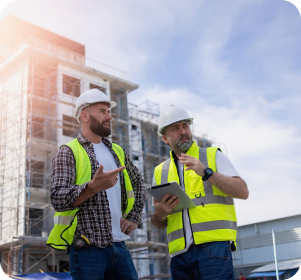
Who Benefits from Monolith’s 7-in-1 System?
The versatility and performance advantages of Monolith’s polyurethane ICF technology deliver specific benefits to various stakeholders in the construction industry:
Builders and Contractors
- Simplified construction process reduces reliance on specialized subcontractors
- Faster project completion increases annual build capacity
- All-weather construction capability reduces costly delays
- Reduced labor requirements address skilled workforce shortages
- Superior performance reduces callback issues and warranty claims
Architects and Designers
- Excellent design flexibility with superior structural performance
- Enhanced energy performance helps meet or exceed building codes
- Disaster-resistant construction provides peace of mind for clients
- Integrated systems simplify specification and compliance documentation
- Better acoustic performance enhances occupant comfort
Developers
- Faster project completion reduces carrying costs and speeds up ROI
- Enhanced building performance commands market premium
- Reduced warranty and callback issues improve profitability
- Sustainability features appeal to environmentally conscious buyers
- Disaster resilience reduces risk in vulnerable regions
DIY Homeowners
- Straightforward building system similar to stacking blocks
- Reduced need for specialized skills or tools
- Construction possible with smaller crews
- Superior performance provides long-term value
- Enhanced disaster resistance protects family and property
Building Owners
- Significantly reduced energy costs throughout building lifespan
- Enhanced comfort through consistent temperatures and acoustic insulation
- Lower insurance premiums due to superior disaster resistance
- Reduced maintenance requirements and longer building lifespan
- Healthier indoor environment through moisture control and improved air quality
Addressing Construction Industry Challenges
Monolith’s 7-in-1 system provides effective solutions to some of the most pressing challenges facing today’s construction industry:
Climate Resilience
With extreme weather events becoming more frequent and severe, the need for disaster-resistant construction has never been greater. Monolith’s polyurethane ICF technology provides superior protection against:
- Hurricanes and high winds (resistance exceeding 250 mph)
- Flooding (zero water absorption prevents structural damage)
- Wildfires (4+ hour fire rating without melting)
- Earthquakes (monolithic concrete construction performs better in seismic events)
Energy Efficiency Demands
As energy codes become increasingly stringent and energy costs continue to rise, Monolith’s exceptional thermal performance provides a future-proof solution:
- R-33 insulation value far exceeds other building methods
- Airtight construction eliminates energy waste through air leakage
- Thermal mass of concrete helps moderate temperature swings
- Reduced HVAC requirements lower both installation and operating costs
Labor Shortages
The construction industry continues to struggle with skilled labor shortages. Monolith addresses this challenge through:
- Simplified construction requiring fewer specialized trades
- Straightforward building system that requires minimal training
- Reduced labor requirements through system integration
- Lightweight materials that reduce worker fatigue and injury risk
Rising Material Costs
While the initial cost of polyurethane ICF is higher than traditional framing materials, the integrated nature of the 7-in-1 system eliminates the need for multiple separate components, potentially reducing overall material costs. Additionally, the system’s superior performance and durability provide exceptional value over the building’s lifespan.
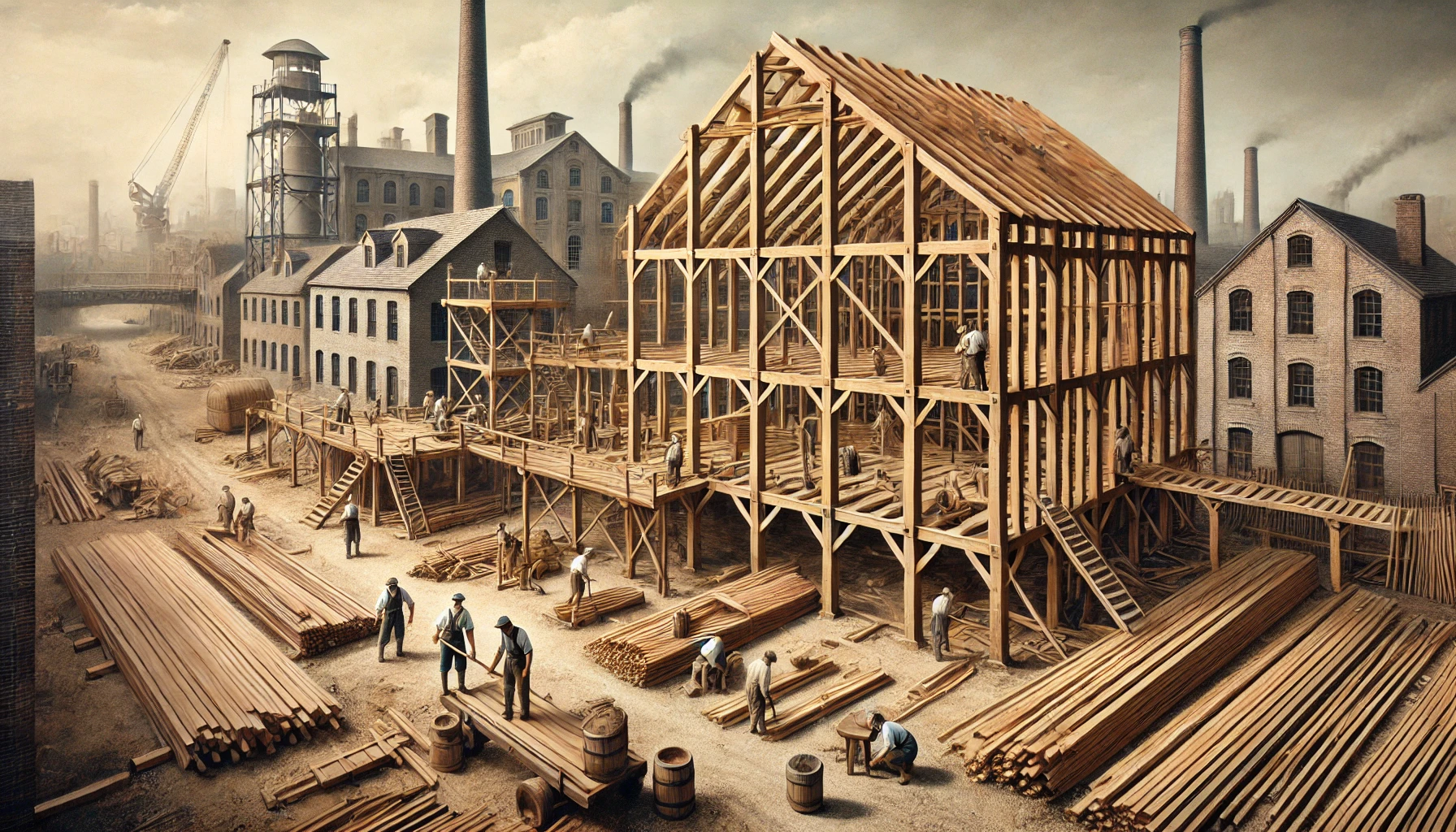
Conclusion: Protect What Matters with Monolith
Monolith’s effective 7-in-1 Building System represents a practical approach to construction. By combining structure, insulation, vapor barrier, finishing surfaces, sound barrier, air barrier, and fire protection into one cohesive system, Monolith delivers reliable performance while simplifying the construction process.
The use of polyurethane rather than traditional expanded polystyrene elevates ICF technology, providing better strength, durability, energy efficiency, and disaster resistance. This performance advantage translates to tangible benefits for builders, designers, developers, and building owners alike.
As the construction industry adapts to meet growing demands for sustainability, resilience, and efficiency, Monolith’s practical approach offers a reliable solution. By protecting what matters most—families, homes, investments, and our environment—Monolith helps you create more secure, efficient buildings that last.
Ready to Experience the Monolith Difference?
Learn more about the practical 7-in-1 Building System and how it can improve your next construction project. Attend one of Monolith’s upcoming workshops to see live demonstrations, including their impressive burn test, and access exclusive Pioneer pricing available only to attendees. Connect with industry experts and discover how Monolith can help you protect what matters most, efficiently and effectively.
Contact Monolith Today to discover how the 7-in-1 Building System can protect what matters in your construction projects.

